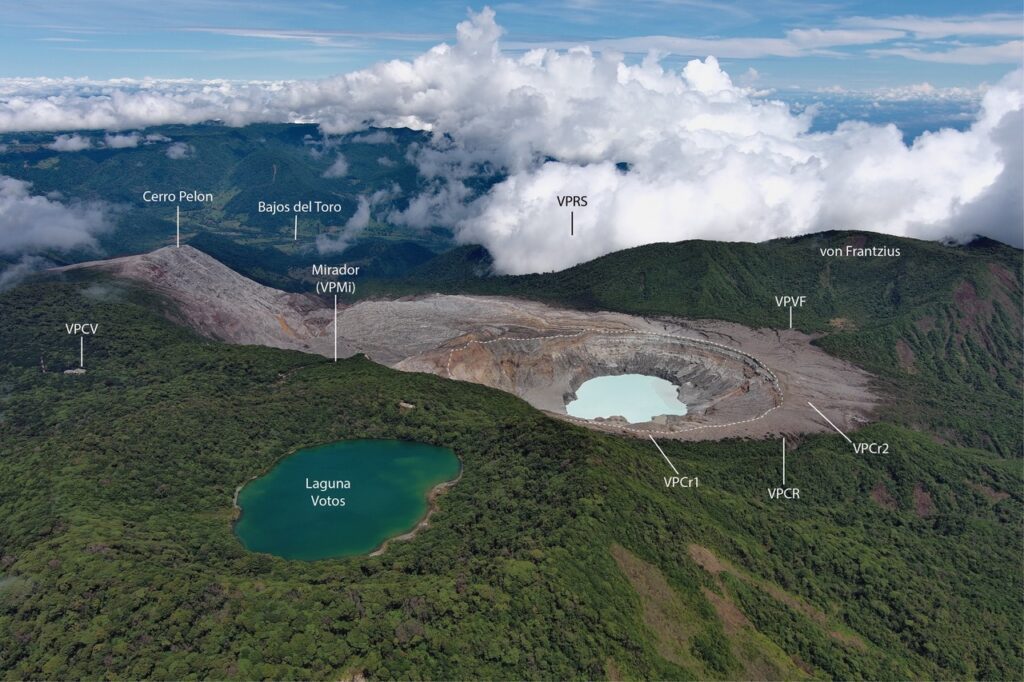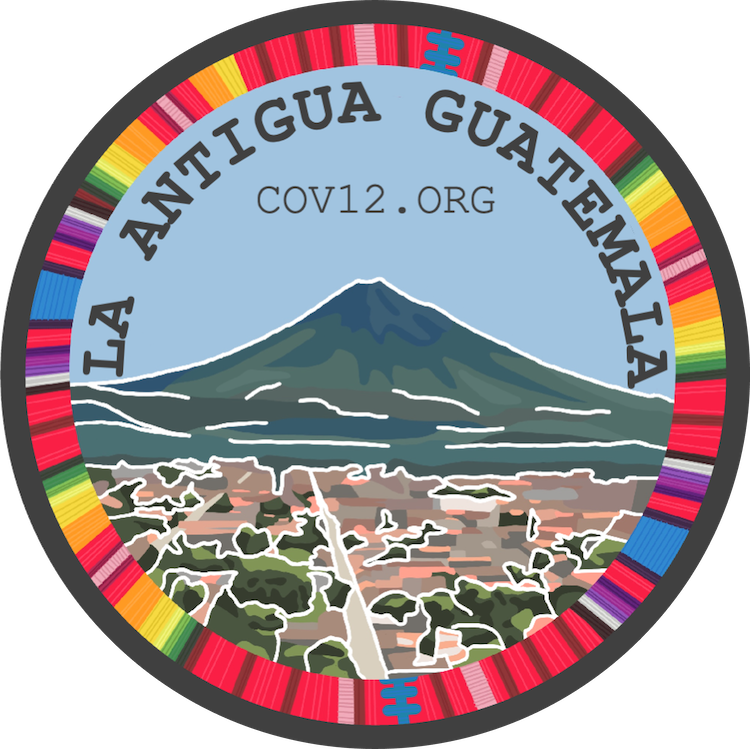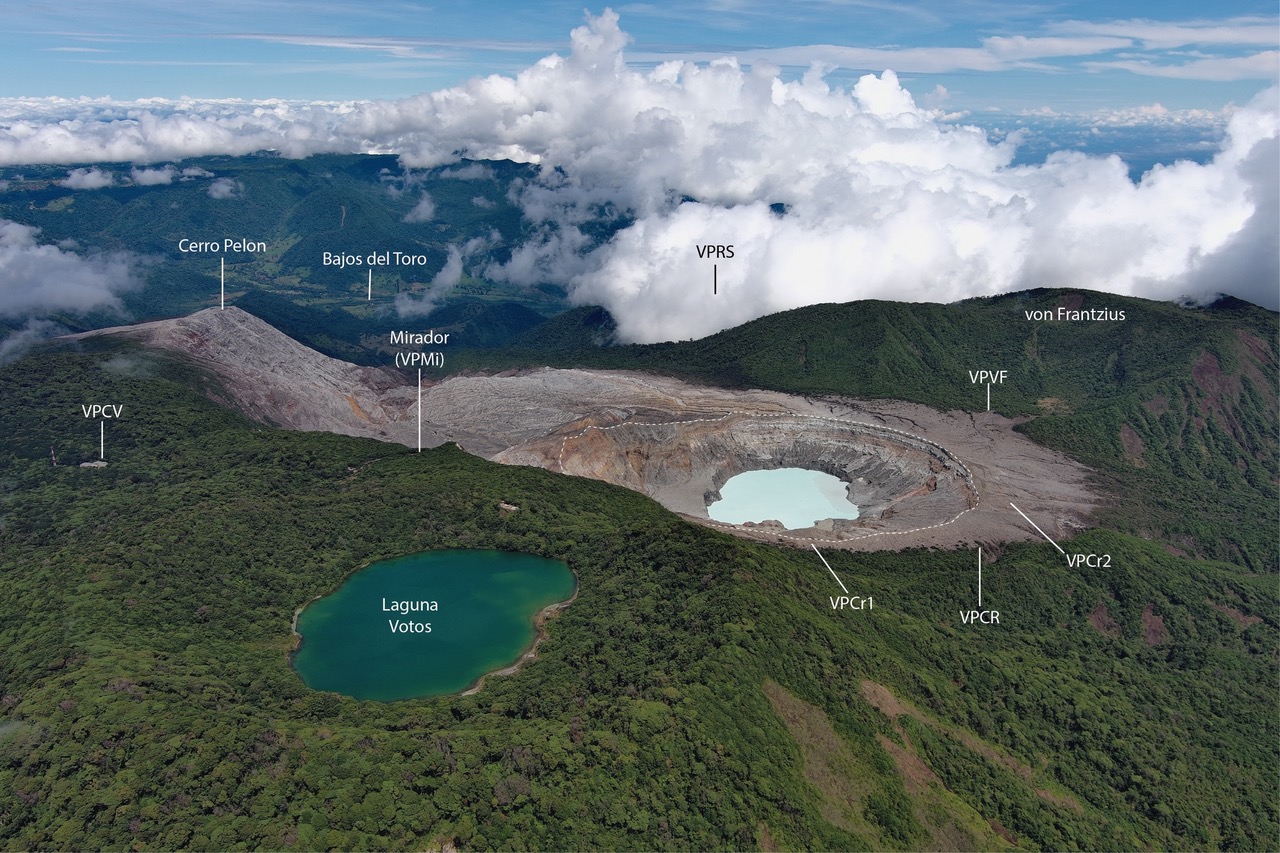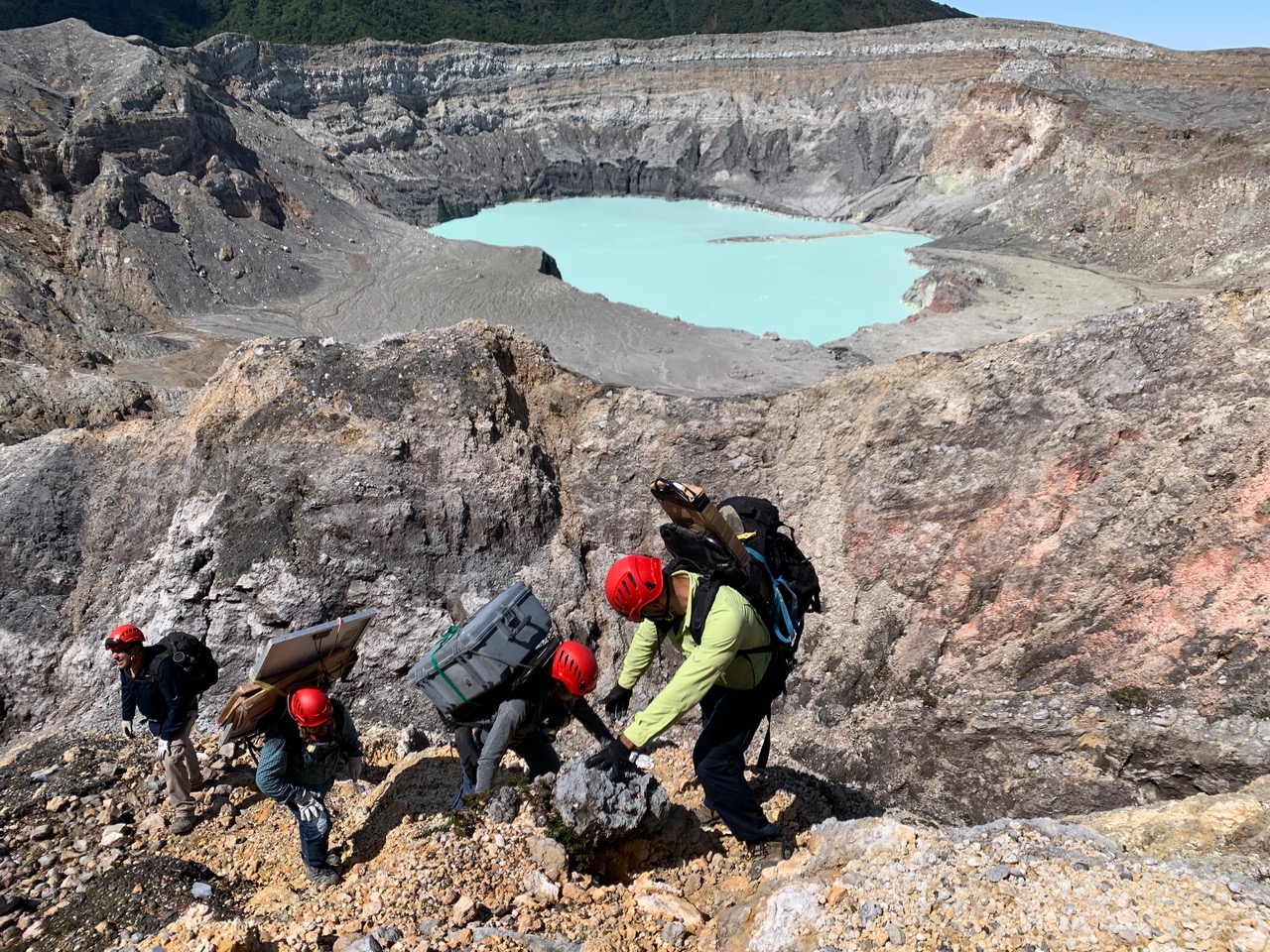Organizers:
Conor Bacon (tplank@ldeo.columbia.edu) , Terry Plank (cbacon@ldeo.columbia.edu), Einat Lev (LDEO, Columbia University) and Maarten de Moor (OVSICORI, Costa Rica).
Location
Poás Volcano, Costa Rica
Accommodation


Target audiences
Researchers (including graduate students)
Dates
February 18–23, 2024
Participants
15–20 (plus the organizers)
Goals
The AVERT project (Anticipating Volcanic Eruptions in Real-Time), in collaboration with OVSICORI (Observatorio Vulcanológico y Sismológico de Costa Rica), invite attendees of the Cities on Volcanoes 12th Congress to a 5-day community field experiment at Poás volcano in Costa Rica. Situated less than an hour from San José, Poás is an incredibly accessible system exhibiting a range of volcanic phenomena, including a persistent gas plume, fumaroles, a crater lake, seismicity, and deformation. The primary goal of the trip is to bring together volcanologists across a broad range of sub-disciplines to create a unique, multi-parameter snapshot of the volcanic system in conjunction with the long-term community platform that AVERT and OVSICORI will install at Poás in November 2023 and the permanent OVSICORI monitoring network. Participants are invited to bring novel instrumentation to the volcano and are encouraged to reach out in advance to discuss compatibility requirements if interested in connecting instruments to the AVERT platform. We hope this field trip will serve as an opportunity to explore potential applications of the AVERT platform to volcano observation efforts elsewhere.
The AVERT platform: We have engineered a full hardware-firmware-software stack for near-real-time, multi-parameter monitoring that can operate autonomously at remote volcanic systems. Data—seismic, geodetic, visible/IR imagery, and geomagnetic—from these sites are telemetered from the volcano back to a remote server, where they are made immediately available via web-based data portals. Each node in the network is equipped with a single-board computer which allows in-situ analysis of data streams prior to telemetering and gives a degree of fidelity over data transmission through the bandwidth-limited uplinks. For more information about the AVERT project, please visit the website: avert.ldeo.columbia.edu
For more information about OVSICORI, please visit the website.
Brief Description of Field Trip / Workshop
This field trip primarily aligns with the “From volcano monitoring and hazard assessment to risk management” theme of CoV12, with in-situ data collection and the potential for longer-term instrument deployments that make use of the platform developed as part of the AVERT project. This field trip will be conducted in partnership with OVSICORI, who bring a wealth of knowledge about volcanic processes at Poás and Costa Rica more broadly. The field trip will include research talks to learn more about Poás, discussions of new instrumentation and deployment plans, coordinated field measurements over five days, and real-time data analysis. Remote participation may be possible for researchers interested in analysis and discussion of real-time data.
Costs
All on-site costs will be covered for accepted applicants. Travel not included. To apply, go to the website (to be provided). Priority will be given to participants who bring novel instrumentation, data assimilation techniques, and/or data accessibility strategies that are well-suited to the timeframe of the workshop and available infrastructure.
Meals
All meals during the field trip will be provided.
Special requirements
The Poás visitor center can be reached by car, from which it is a short hike to the summit crater, where much of the community experiment activity will be focused.




